
Oct 28, 2020 | Staying on Top, UpstateVibe365
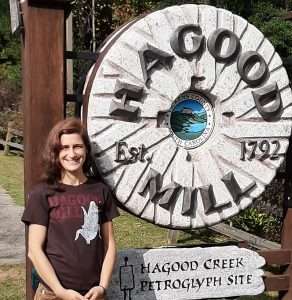
Katie Mann, Assistant Director, Hagood Mill Historic Site
The COVID-19 pandemic has created a sudden, massive public need for trustworthy digital inclusion services. Millions of Americans need support from digital inclusion programs: to get connected with affordable home internet, find affordable computing devices, and learn basic digital skills. “Digital Navigators” is an adaptation of traditional digital inclusion programming to this new reality, providing one-to-one dedicated support via phone service. Let’s explore the power of networking to see how these challenges are being overcome in the small town of Pickens, SC, located in the foothills of the Blue Ridge mountains.
There are many organizations that have come together to work on this common goal to help the public in need of short term assistance to overcome the challenges of digital access. Let’s start with the Hagood Mill Foundation (HMF), the most unlikely collaborator to this cause. HMF is the non-profit organization that runs the day-to-day operations of the Hagood Mill Historic Site. HMF is dedicated to the protection, preservation, and study of South Carolina Upcountry life and culture.
The historic site itself is named for the Hagood Mill, the oldest operating grist mill in South Carolina. Built in 1845, the mill is celebrating 175 years this year! Over the years, the Hagood Mill has been a food hub and a place to gather and share stories. While the general public no longer brings their home grown grains to grind at the Mill, it certainly comes to enjoy the running of the Mill every third Saturday at the Folklife Festivals, where folks can see living history demonstrators and purchase their grits, cornmeal and other especially flours fresh from the grinding stone.
The Vice Chair of the HMF, Dr. Betty McDaniel, serves as a full time volunteer with multiple organizations, now that she is a retired school teacher. Grant writing, networking and cross collaborations are some of her strengths. She was notified of a last minute grant opportunity by her colleague, Bob Reeder, to work on the very important issue of digital inclusion. Bob Reeder is the Program Director of Rural Local Initiatives Support Corporation (LISC), where he oversees a portfolio of 72 Community Development Corporation (CDC) Partners in over 43 states. One of many of Rural LISC’s programs is digital inclusion.
Rural LISC has teamed up with the National Digital Inclusion Alliance (NDIA) to make this project possible. The NDIA is a unified voice for home broadband access, public broadband access, personal devices and local technology training and support programs. They work collaboratively to craft, identify and disseminate financial and operational resources for digital inclusion programs while serving as a bridge to policymakers and the general public.
When Dr. McDaniel was approached by Mr. Reeder, she put the Hagood Mill’s Assistant Director, Katie Mann, to the task of applying for the grant. With the event cancellations due to COVID, and the need to expand virtual offerings at the Hagood Mill, the grant has also supported the Hagood Mill in expanding its own digital capabilities. Thus far with the grant monies, the Hagood Mill has invested in expanded WiFi around the site and a new computer in the Hagood Creek Petroglpyh Site, a museum dedicated to prehistoric rock art and Native American art and artifacts, which is also located on Hagood Mill grounds. The general public is welcome to come use this computer during regular operating hours to conduct research or simply surf the web.
Ms. Mann has networked with Barbara Nesbitt, the Assistant Superintendent for Technology Services at the School District of Pickens County, to identify families in need of digital assistance. Ms. Mann has begun distributing computers, laptops, and cash vouchers to those in need of help paying for their internet service. The funding allows HMF to support 50 clients with $250 allotted for each client. We are still seeking clients to assist, so if you are in Pickens County and could use help closing the digital divide, reach out to Ms. Mann.
The Hagood Mill has also networked with the Public Library in Pickens, who have not been able to offer their digital literacy trainings due to the COVID pandemic. They will use the Heritage Pavilion, a large, open-air pole barn to schedule trainings in a space that is easy to remain socially distant.
The power of networking is highlighted here in this digital inclusion story. As individuals, it is hard to achieve our goals, especially when we are trying to overcome challenges presented by the COVID pandemic. Together we can achieve so much. If Mr. Reeder had not reached out to his colleague Dr. McDaniel, the HMF would not have this opportunity to assist community members in closing the digital divide. Keep networking y’all!
Author Katie Mann, is the Assistant Director at the Hagood Mill Historic Site, and is serving as the Digital Navigator and dispersing the funds of the grant to those most in need of assistance. You can call Ms. Mann to learn more at 864-214-6504. The Hagood Mill Historic Site is open Wednesday to Saturday, 10 am – 4 pm. Hagood Mill’s number is 864-898-2936. www.hagoodmillhistoricsite.com

Oct 28, 2020 | Staying on Top, UpstateVibe365

Stinson Ferguson, Co-Chair, Ten at the Top Safer Upstate Committee
By Sheriff Rick Clark and Stinson Ferguson, Co-Chairs, Ten at the Top Safer Upstate Committee
While personal and community safety have always been vital components of society, the pandemic and social outcries of 2020 have made these topics top of mind for all of us.
Over the past several months, law enforcement, local government, non-profit, social services, and community leaders from across the Upstate convened four times as a discovery committee for a series of discussions around the topic of “Creating a Safer Upstate.”
We recognize the need to be proactive in discussing how and taking action to create a culture where the lives of all law enforcement officers and all residents are treated with equal importance.
Regardless of whether your experience or concern around the issue is from the perspective of law enforcement or as a member of the greater community, it is critical to understand that each viewpoint is authentic, relevant, personal, and deserving of understanding and consideration as we work to chart a better path forward.
Throughout our discussions, the Upstate leaders involved have prioritized purposeful listening, inclusion, and respect of diverse viewpoints.
We have concluded that creating and maintaining a “Safer Upstate” is ultimately not the responsibility of just one group. Each and every one of us plays an important role in the journey.
Certainly, our law enforcement officers play a critical role, and have a responsibility to seek to understand the communities to which they provide service. However, it is also the responsibility of our community leaders – both seasoned and emerging – to help foster a productive and fertile environment for collaboration among law enforcement and local communities.
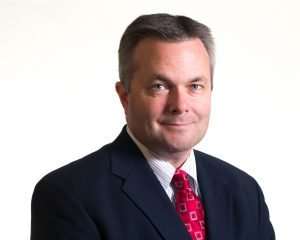
Sheriff Rick Clark, Co-Chair, Ten at the Top Safer Upstate Committee
After much conversation and deliberation, the discovery committee has decided to form the Safer Upstate Committee as part of the work of Ten at the Top (TATT). TATT is a regional non-profit working hard to foster collaboration and partnerships around issues that impact economic vitality and quality of life in the Upstate.
The purpose of the Safer Upstate Committee is to create a safer and more united Upstate Region where all law enforcement stakeholders work collaboratively with community leaders to foster a collective culture that respects and values the lives of all officers and residents. The Committee intends to represent, support, and communicate local efforts to improve relationships between law enforcement and community residents across the region.
Three primary goals for the committee have been identified:
1. Engage law enforcement officials, community leaders and residents to work together to build healthy working relationships that elevate mutual respect, value cultural differences, and acknowledge the roles and responsibilities that each play in creating safer Upstate Communities.
2. Provide regular opportunities for law enforcement and community leaders to convene to proactively discuss community issues and emerging law enforcement topics while exploring approaches that can be implemented across the Upstate Region.
3. Enhance public trust by identifying, sharing and implementing best practice approaches for developing a sustainable, healthy relationship between law enforcement officials and the greater Upstate Community.
A series of action steps have been identified for each goal to help individual communities and the greater Upstate advance towards being a united region that values the lives of all officers and residents.
As natives of the Upstate, we are excited to serve as co-chairs of this initiative, but recognize that it is much easier to identify a shared purpose and series of goals than it is to execute the mission.
Creating a Safer Upstate will take a shared commitment by law enforcement, community & business leaders and residents to work together without assigning blame or supporting stereotypes. We invite you to join us on this critical journey.
You can read the full set of recommendations and committee action steps and volunteer to become involved in the Safer Upstate initiative at www.tenatthetop.org.
Rick Clark is the Sheriff of Pickens County and a lifelong county resident. Stinson Ferguson is Special Counsel for Haynsworth Sinkler Boyd Law Firm in Greenville and a native of Spartanburg County.

Oct 23, 2020 | Staying on Top, UpstateVibe365
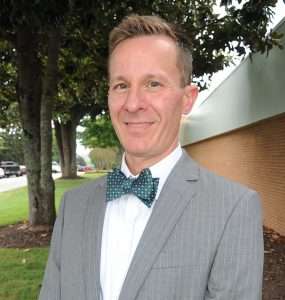
Dr. Galen DeHay, President, Tri-County Technical College
Welcome Terence Roberts, TATT Chairman
Guest Presentation Dr. Galen DeHay, President, Tri-County Technical College
You can watch the video recap here.
You can view the presentation here.
TCTC has created a safe on-campus learning and working environment, delivering high quality learning experiences for the 2020-21 academic year
Students include 17 to 60+ year olds
Changes and new methods include restructured fall instruction and redesigned virtual enrollment experience
Online training of faculty, advisors, coaches
Librarians and tutoring embedded into classes
Communications include town halls, open virtual office hours, weekly blogs
40-50% of employees on campus any given day with a mix of telework
Virtual and drive-in job fairs
Student Workforce Completion Fund for emergency funds for students and more to come
Students of color, low income students have been impacted heavily
Despite many challenges, resiliency is focused on with priorities to fit college into students’ lives, expand workforce pipeline, build new partnership, and strengthen community relationships.
TCTC is a great choice for quality, support, and cost.
TATT Updates Dean Hybl, TATT Executive Director
Events coming up include Upstate Professional Planners, Air Quality Advisory Council, Creating Upstate Unsung Heroes Virtual Event
County Updates
Anderson: Steve Nail, Anderson University
Largest private university in SC
Increase of 7%, 3,848 students
Boarders up 5%
Diversity at 18%, high rate historically
COVID 1% positivity rate
Long winter break starting before Thanksgiving
Greenville: Caroline Robertson, Greer Relief
Able to assist with rent, mortgages for many people with a great team of people and community support
Hiring a data entry person (remotely) 10-15 hours/week for the next year
Gearing up the Greer Christmas Parade on Dec 6th, largest fundraiser
Greenwood: Stephen Gilbert, Greenwood Community Theatre
Tough time in the entertainment industry
Outdoor concerts, we are going to try an outdoor Charlie Brown Christmas in Dec (literacy program)
Struggling with appropriate time to re-open and still be safe and a draw
Oconee: Suzette Cross, Blue Ridge Arts Council
Became involved with TATT through a grant and produced art around Seneca
Work with Hamilton Career Center
Housed in oldest church in Seneca
Have had tree fall on building and tornado damage but moving forward
Hosting Members gallery, art classes starting, and studio open
Working on two new murals in Seneca
Laurens: Amanda Munyan, Laurens Chamber of Commerce
Continuing support through funding, promotions, and education
Laurens City Council approved for reading to sell 66 acres to SK Builders out of Greer for a home development in Laurens
Excited about growth and development in the area

Oct 21, 2020 | Staying on Top, UpstateVibe365
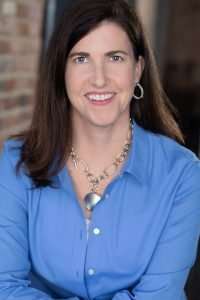
Dana McConnell, Executive Director, Center for Developmental Services
I remember the moment when CDS first realized we needed a plan for the looming pandemic. It was Monday, March 2, 2020 during our monthly partner meeting with all the organization leaders at CDS. We had just evaluated some of our programs and were about to move on to another topic when Dr. Desmond Kelly of Prisma Health Children’s Hospital asked about CDS’ plan if the coronavirus made its way to South Carolina.
The initial reaction was to pause a moment, allowing the thought to sink in that this virus could actually be a threat to our community. Then I remembered why our collaboration works so well…we benefit from each other’s resources. The response was an assurance that CDS will work with Prisma Health to implement the highest standards recommended to keep our staff and families safe.
The next few weeks were a whirlwind of conversations, emails and decisions between Janine Sally, Director of Kidnetics and the Wonder Center at Prisma Health, and Becky Jones, Director of Operations at CDS. The priority was to keep our building open and continue the critical care our families needed. It was going to take a strong, collaborative effort and compliance from the other partners to keep our doors open. Our partners worked together and stayed in constant communication to keep up with the latest information, guidance and statistics coming out of multiple news outlets.
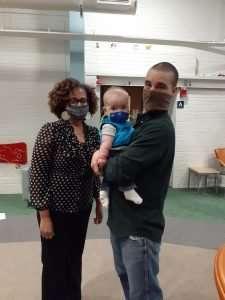
Salem & Isaac Maud with CDS staff member, Jataun Clark
Before I continue, it’s important give a brief description about CDS. The Center for Developmental Services (CDS) is a nonprofit located in downtown Greenville that links five other nonprofit organizations together to provide multiple services under one roof for children with developmental delays and disabilities. Our partners include Prisma Health (Kidnetics, Developmental Pediatrics, the Wonder Center, and Prosthetics and Orthotics), Clarity, Family Connection, Thrive Upstate, and a medical-legal partnership. Together, we provide evaluation, therapy (speech, occupational, and physical), audiology, psychology, prosthetics, orthotics, legal aid, service coordination, education, and a medically fragile day care all surrounded by a family support network. Our goal is for these disability services in the Upstate to be delivered in the most streamlined, efficient way possible.
The success of our partnership depends largely on the strength of each partner, and that has never been more apparent than in 2020. With guidance from Prisma Health, CDS created a policy to limit the number of people in the building by encouraging family members to wait in their cars for appointments. We have new procedures to disinfect the lobby furniture, hand rails, and other frequently touched surfaces every two hours. We have removed items such as toys and books that are hard to clean, and we have socially distanced all the patient seating.
Prisma Health is utilizing their hospital network to purchase all of our PPE needed for patients and staff throughout the building. Kidnetics orders approximately 700-1,000 masks per week for all the building staff and the families who come to CDS. Kidnetics has also been instrumental in obtaining the disinfectant chemicals that are specifically rated to combat the virus, a product our small nonprofit was unable to obtain.
The Wonder Center has taken the lead on staffing a dedicated nurse at the entrance to take temperature readings and ask the full list of screening questions of every patient, staff member, or guest. If anyone has been exposed recently or is found to have symptoms related to the virus, our policy follows the latest quarantine restrictions to protect the health and safety of our families.
 These policies and procedures were the result of multiple stakeholders coming together for a common purpose. Our single, biggest level of success here at CDS this year is that we were able to keep our building open during the height of the pandemic when many other programs and businesses had to temporarily close. I am immensely proud of our partners and the collaboration we share. It is through this collective effort that we are able to serve children and individuals with developmental delays and disabilities so they can get the vital services they need, even during a worldwide pandemic.
These policies and procedures were the result of multiple stakeholders coming together for a common purpose. Our single, biggest level of success here at CDS this year is that we were able to keep our building open during the height of the pandemic when many other programs and businesses had to temporarily close. I am immensely proud of our partners and the collaboration we share. It is through this collective effort that we are able to serve children and individuals with developmental delays and disabilities so they can get the vital services they need, even during a worldwide pandemic.

Oct 21, 2020 | Staying on Top, UpstateVibe365
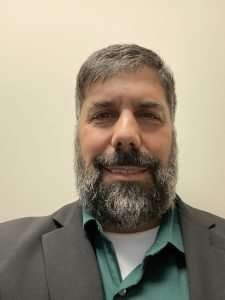
Kenneth Moon, Deputy Director Cherokee County Development Board
Q: When the impact from the pandemic started to hit in March and April, what did you do to touch base with manufacturers and employers in Cherokee County?
A: We quickly reached out to every industrial company in the county. We gave them every bit of information we had to help them weather the storm.
Q: What were their initial concerns and were you able to help address them? Have you seen those evolve over the last six months?
A: Most companies were interested in the process to be deemed essential if the governor decided to close down manufacturing. As time went by, concerns turned to unemployment compensations. An overwhelming number of employers had trouble getting employees to come back due to the extra $600 a week people were receiving on unemployment. They were also concerned with the lack of support they received from DEW Unemployment. Companies were reaching out for help to get people to come back to work, but the DEW system was overwhelmed, and appeals were taking months. Many employers were frustrated as they felt the DEW was not being responsive.
Q: Have there been any issues that were a major surprise?
A: The major issue we experienced in Cherokee County concerned unemployment.
Q: Have you continued to be in-touch with your employers? How important has communications been during this time?
A: Yes, we continually contact employers to ensure they are doing well. Communications have been very important to ensure timely and quality information is given to employers. So far, we have had an accurate assessment on the impacts.
Q: Like in most counties, the unemployment rate in Cherokee County rapidly increased at the start of the pandemic. What is being done in the county to get people back to work?
A: Cherokee County unemployment numbers were so high because of retail and restaurants. Cherokee is a small rural county has an unusually large about of both. The number came down significantly once the restaurants and small retail stores were allowed to open.
Q: There has been discussion about companies wanting to bring manufacturing, especially related to PPE and medical devices, back to the US to reduce supply chain issues. Have you seen an uptick in interest for manufacturers potentially coming to Cherokee County?
A: Cherokee County manufacturing pivoted and many started to produce PPE. Carolina Cotton Works, Parkdale Mills, Wedel Fabrics and Hamrick Mills to name a few. I believe we will continue to see an uptick in production from existing industries.
Q: Are there any issues that you knew needed to be addressed before the pandemic that have been magnified by the pandemic? If so, what are they and are there opportunities for addressing them now?
A: Before the pandemic, an issue that needed to be addressed in our county was workforce training. Once the pandemic hit, a lot of untrained/unskilled workers for retail and service tried to move into manufacturing and warehousing. None had training which caused more issues for industries.
Q: Are there adjustments you have seen employers in Cherokee County make during the pandemic that you think will continue long-term?
A: The pivot to making PPE is one of the adjustments that we foresee continuing into the long-term. Also, many industries here have increased their pay during this time to give pandemic raises of $2-$3 more per hour. The industry is realizing that they get better quality employees when their wages are aligned with the growing industrial base.
 Q: Are there any “silver lining” impacts from the pandemic that you think will turn out to be a positive for Cherokee County in the long-term?
Q: Are there any “silver lining” impacts from the pandemic that you think will turn out to be a positive for Cherokee County in the long-term?
A: There are no foreseen “silver lining” impacts from the COVID-19 pandemic that will turn out to be a positive for Cherokee County in the long term.

Oct 14, 2020 | Staying on Top, UpstateVibe365

Catherine Schumacher, President & CEO of Public Education Partners
With everything that teachers have had to endure over the past six months, we should all take time to thank them. Educators, the Greenville County Schools administration, and a wide range of individuals and organizations are working day in and day out to improve educational outcomes for Greenville’s children while also prioritizing everyone’s safety.
Gratitude is powerful. As Brené Brown’s hundreds of thousands of followers will attest, cultivating a sense of gratitude can actually rewire your brain so that you are more capable of navigating the toxic stress of our 21st Century lives. Or, more to the point, the toxic stress of 2020.
Back in March, I was invited to share my thoughts on how the pandemic was impacting public schools, especially here in Greenville County, where since 1985 Public Education Partners (PEP) has led collective efforts to improve student achievement. Gratitude was the central theme. I closed that article with three pleas: Be well. Stay safe. Thank a teacher.
Six months later, those words still apply. If anything, they are more relevant. Millions of our fellow citizens have gotten sick, hundreds of thousands have died, and the long-term health and economic repercussions remain hard to predict. Tens of thousands of Upstate public school students, teachers, and families are navigating a complex mix of learning options — none of which is perfect for everyone, and all of which require significant sacrifice and patience. Sadly, those traits seem in short supply right now.
In light of all of this, teachers have embodied the resiliency and creativity that they strive to model for their students. The much-needed summer break was consumed by online trainings, lesson plan adaptations, and building virtual teaching studios in living rooms and kitchens. Since August, classrooms have become production centers for online learning sessions, and carefully designed spaces where children can come together in-person to safely learn with their peers.
In all of this, teachers’ responsibilities have continued to grow. They respond to emails in the middle of the night, talk caregivers and students through using new technologies, and worry about the children who aren’t transitioning well. They do all of this while exposing themselves to a virus that we still don’t know everything about, trusting that their principals and administrators have their backs and are doing everything possible to keep both them and their students safe.
 At PEP, we are committed to elevating the voices of teachers whenever possible. They are the experts, just as scientists are the experts when it comes to issues of Covid-19. But they are also human. They are our parents, our friends, our partners. Parishioners in our churches or neighbors down the street. Greenville County Schools alone employees 6,000 teachers — a significant workforce that is woefully and systematically underpaid, and whose voices are not listened to enough by the elected officials that continue to kick the can of education and funding reform down the road.
At PEP, we are committed to elevating the voices of teachers whenever possible. They are the experts, just as scientists are the experts when it comes to issues of Covid-19. But they are also human. They are our parents, our friends, our partners. Parishioners in our churches or neighbors down the street. Greenville County Schools alone employees 6,000 teachers — a significant workforce that is woefully and systematically underpaid, and whose voices are not listened to enough by the elected officials that continue to kick the can of education and funding reform down the road.
We know that the road to economic recovery may be long, but I hope that we will agree that the overwhelming burden cannot be carried on the backs of our public education system alone. In the wake of the Great Recession, K-12 education funding was cut by 20%. It took 12 years to return to pre-recession levels – just in time to welcome a global pandemic.
Early next year, our General Assembly will convene in Columbia for its next two-year session. It is impossible to predict where we will be by then, but it is clear that to lay the groundwork for a lasting recovery, we must prioritize investing all the resources we can muster in our teachers and public schools. South Carolina was already facing a teacher recruitment and retention crisis of unprecedented proportions, which this pandemic will undoubtedly exacerbate. We need data-centered strategies and strong leadership.
Advocates for public education must be ready to make their voices heard. You can start by learning which candidates fighting for your vote on November 3rd are true champions for public education. Critically, get to know the candidates for your local school board election. In Greenville, six of the 12 school board seats are on the ballot this year, and PEP has a School Board Questionnaire to help you learn more about the candidates. We also encourage you to sign-up for our Action Alerts, which will keep you informed on critical education issues and make action easy.
I’m so grateful for the teachers that my two boys have every year, but especially this year. So in their honor: Be well. Stay safe. Thank a teacher. And you can start with your choices at the polls.
Catherine Schumacher
President & CEO
Public Education Partners
Public Education Partners (PEP), founded in 1985, leads our community in acting collectively to support, strengthen, and advance public education and student achievement in Greenville County Schools. To that end, its work focuses on Elevating Teachers, Empowering Advocates, and Engaging Communities.


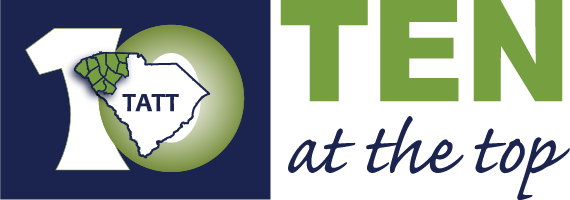








 These policies and procedures were the result of multiple stakeholders coming together for a common purpose. Our single, biggest level of success here at CDS this year is that we were able to keep our building open during the height of the pandemic when many other programs and businesses had to temporarily close. I am immensely proud of our partners and the collaboration we share. It is through this collective effort that we are able to serve children and individuals with developmental delays and disabilities so they can get the vital services they need, even during a worldwide pandemic.
These policies and procedures were the result of multiple stakeholders coming together for a common purpose. Our single, biggest level of success here at CDS this year is that we were able to keep our building open during the height of the pandemic when many other programs and businesses had to temporarily close. I am immensely proud of our partners and the collaboration we share. It is through this collective effort that we are able to serve children and individuals with developmental delays and disabilities so they can get the vital services they need, even during a worldwide pandemic.

 Q: Are there any “silver lining” impacts from the pandemic that you think will turn out to be a positive for Cherokee County in the long-term?
Q: Are there any “silver lining” impacts from the pandemic that you think will turn out to be a positive for Cherokee County in the long-term?

 At PEP, we are committed to elevating the voices of teachers whenever possible. They are the experts, just as scientists are the experts when it comes to issues of Covid-19. But they are also human. They are our parents, our friends, our partners. Parishioners in our churches or neighbors down the street. Greenville County Schools alone employees 6,000 teachers — a significant workforce that is woefully and systematically underpaid, and whose voices are not listened to enough by the elected officials that continue to kick the can of education and funding reform down the road.
At PEP, we are committed to elevating the voices of teachers whenever possible. They are the experts, just as scientists are the experts when it comes to issues of Covid-19. But they are also human. They are our parents, our friends, our partners. Parishioners in our churches or neighbors down the street. Greenville County Schools alone employees 6,000 teachers — a significant workforce that is woefully and systematically underpaid, and whose voices are not listened to enough by the elected officials that continue to kick the can of education and funding reform down the road.